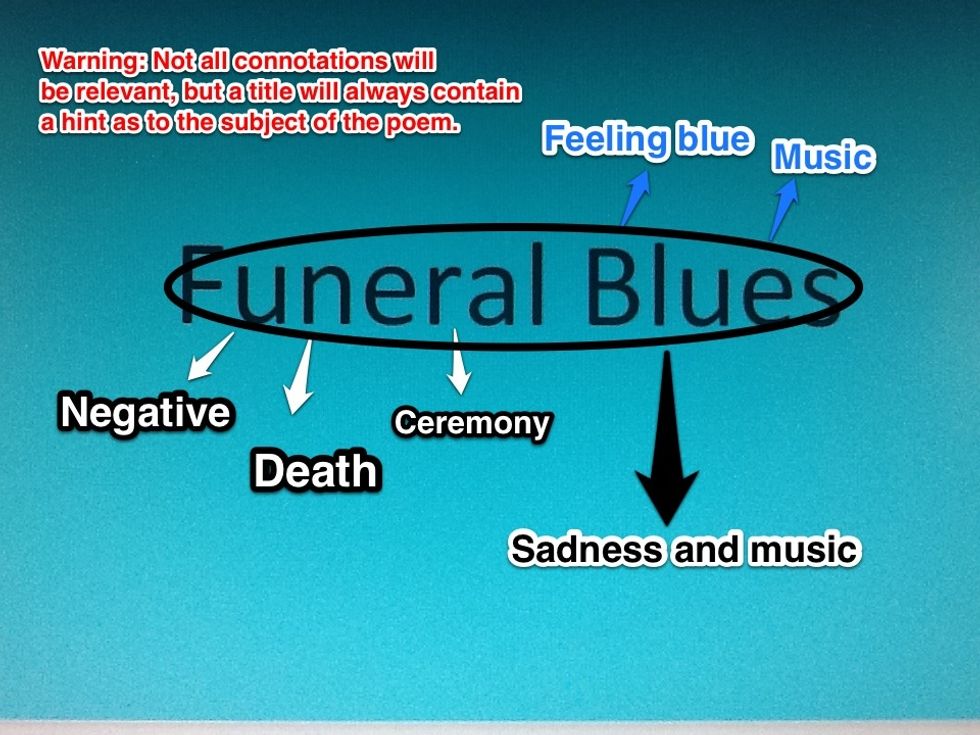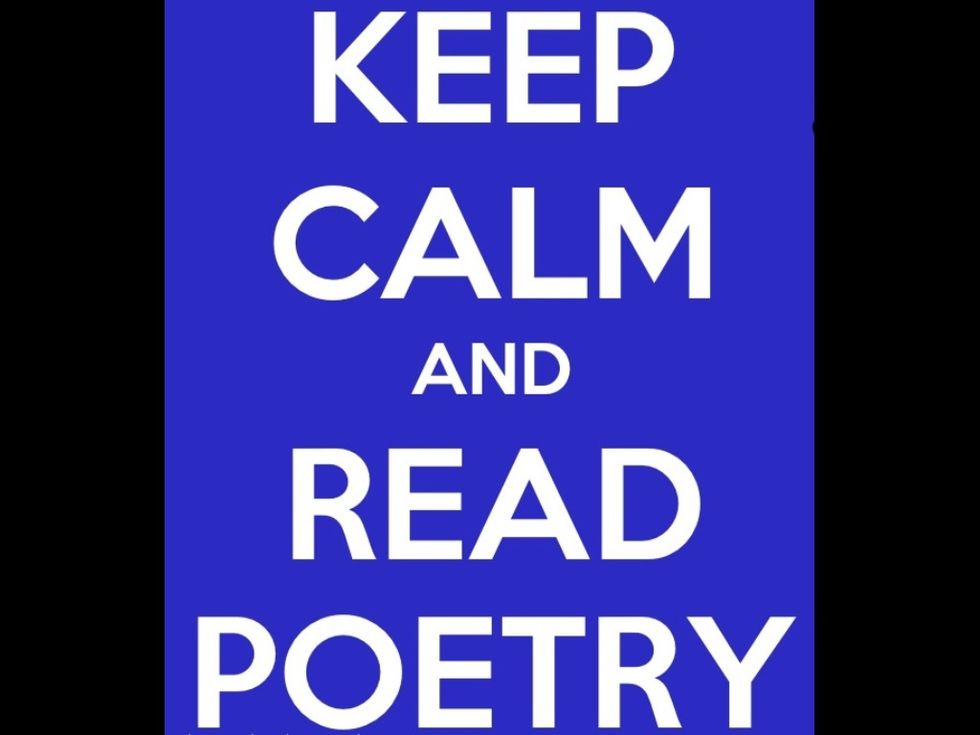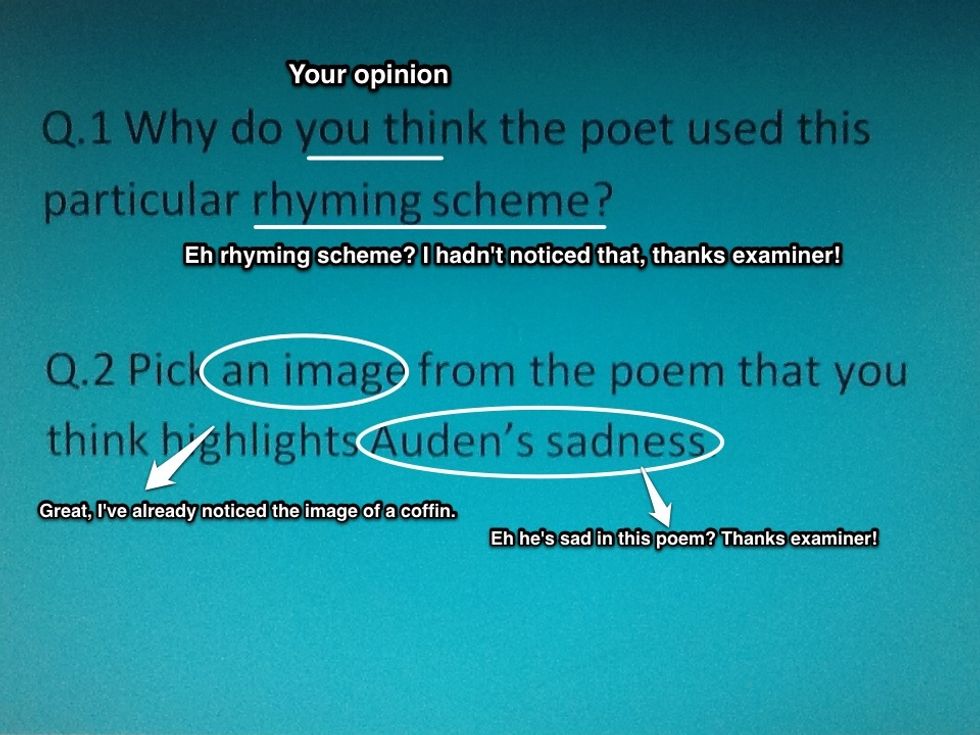How to answer unseen poetry for exams in 7 steps.
Answer Unseen Poetry for Exams in 7 Steps.
135
STEPS
TOOLS
Answering questions on the Unseen Poetry section,for both Leaving and Junior Certificate level, can be daunting. Poetry is beautiful. Poetry is a writer's personal experience intricately described.
If you can find the time to appreciate and enjoy the poem you are reading on the day of your exam that will really help your answers. In reality: you're on a mission! A mission to write answers.
Practice- The steps that follow may initially seem long but, with practice, this entire process can be easily done in the time allocated. (Note- Ability and knowledge of poetry from class is assumed!)
What follows are 7 steps to use on the day of your exam in the Unseen Poetry section. I'm using W.H. Auden's Funeral Blues as an example.
STEP 1 TITLE CONNOTATIONS- The title of a poem is essentially a summary of the entire poem. Funeral Blues is unlikely to be about a happy summer's day. The pun Blues is also essential. Titles are key.

Take each word of the title individually and then treat it as a phrase in its entirety.
STEP 2 STRUCTURE - Before you even read a word, what does the poem look like? Does it have any unusual structural features? Short poems typically contain more symbolism. Does it have 14 lines/sonnet?

Writing your thoughts and ideas beside the poem is a good way to start making it feel less intimidating.
STEP 3 FIRST READING- Maybe you love poetry, maybe you hate poetry or maybe you just feel under insane pressure! Relax. In your first reading try to get an overall feel for the atmosphere of the poem.

In fact, in all sections of your English exam staying calm and sticking to the game plan will add so many marks that otherwise would have been lost.
STEP 4 QUESTIONS- Firstly, now that you have formed some initial impressions of the poem, reading the questions should feel very manageable. If not, secondly, questions may/will contain vital clues!

Two Typical Questions - Questions can help focus you to the task at hand. They also often contain vital clues that should not be ignored.
STEP 5 SECOND/THIRD READING-You have your initial impressions but reading the questions may have changed your thinking. Good. Stay open to interpretation and read the poem really closely making notes.

ALWAYS REMEMBER- It is never enough to simply point out a poetic technique in an answer. 'WHY'- Always discuss WHY a technique was used.Many pupils feel they should be rewarded for simply finding one!
STEP 6 PLAN YOUR ANSWER - What are the key words in the question that you will be addressing? What points are you going to make? Language range? 'Why' discussion of terms? Start ready.
STEP 7 WRITE- Everything leads to this moment. In an exam situation what goes down on paper is what really matters. Take a deep breath, use your planning and write with passion and energy. Good Luck!
The creator of this guide has not included tools
Eoghan Evesson
Eoghan Evesson from the Eng. Dept. of Newbridge College.English teaching ideas & the great work of our pupils and teachers! #edchatie #pedagoofriday #LCetips13
Newbridge, Co. Kildare, Eire.
The Conversation (0)
Sign Up